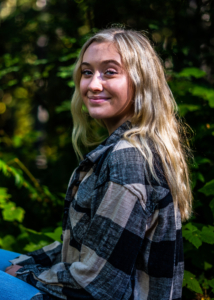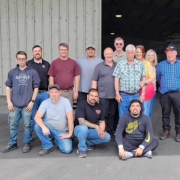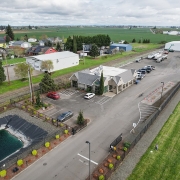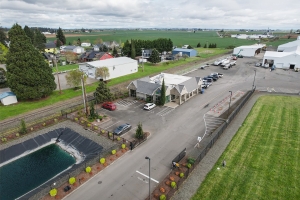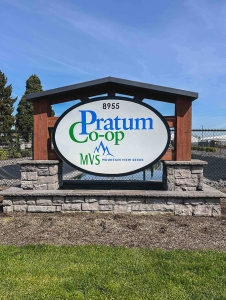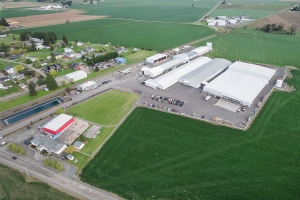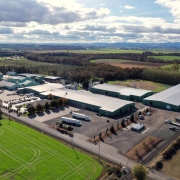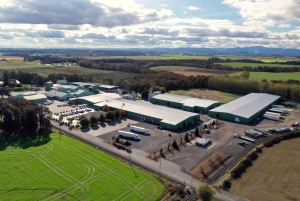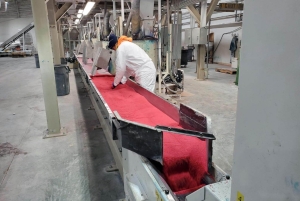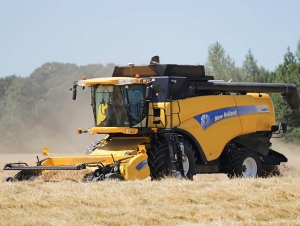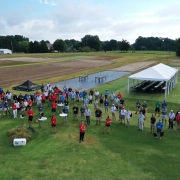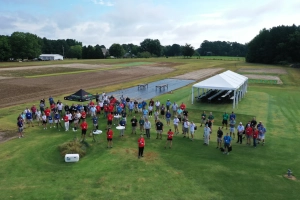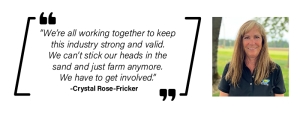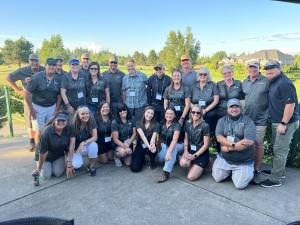Meet the 2024 OSA Memorial Scholarship Winners!
The Oregon Seed Association has awarded its 2024 Memorial Scholarship to six students who have demonstrated excellence in both the classroom and in their communities.
Abigail Hauke, Brandon Withers, Sofia Vachter, John Cavill, Alayna Grunerud, and Ethan Hedgpeth will each receive $1,500 from OSA to further their education. They were selected based on several criteria including academic history, involvement in extracurricular activities, and community service.
“We had a tremendous pool of applicants, and each was more than deserving of this award,” said Chase Cochran, OSA Scholarship Committee Chair.”Everyone at OSA offers our congratulations to this year’s winners. The future is incredibly bright for our industry and beyond.”
Learn more about this year’s winners by reading their bios below!
Abigail Hauke
Abigail graduated this year from Harrisburg High School with a 3.8 grade point average. She plans to enroll this fall in the Aviation Program at Rocky Mountain College in Billings, Mont., in hopes of one day becoming an airline pilot. “This has been my dream ever since my first time flying,” she said. Over the last five summers, Abigail has worked as a combine driver for local farms in Linn County. In high school, she was Senior Class President and Vice President of the local National Honor Society chapter. Jamie Tatum, a teacher in the Harrisburg School District, described Abigail as a “natural leader,” adding that, “Although undoubtedly Abby will go on to be extremely successful in her chosen endeavors, I am most proud of her for her humanity and heart to support others while her actions make our world a better place, each and every day.”
Brandon Withers
Brandon is no stranger to Oregon agriculture. He has spent the last four years working directly with local farms, including two summers at Doerfler Farms, two years at Pratum Co-op, and one fall season at AgriSeed Testing. “These opportunities have given me experience in production, harvesting, research, cleaning, packaging, field scouting, precision ag (with drones), soil, tissue, seed sampling, and laboratory quality testing,” he said. “Based on these experiences, I have developed a strong passion for agriculture and am planning a career as a Crop Advisor.” During COVID, Brandon started his own woodworking business where he made and donated American flags. He completed his Associate Degree and Crop Health Certificate at Chemeketa Community College in June, and will attend Oregon State University to pursue a bachelor’s degree in Crop and Soil Science. His mother, Karen Withers, is the owner of AgCultured Consulting.
Sofia Vachter
Sofia is a freshman at Oregon State University as a dual-enrolled student with Linn-Benton Community College. She plans to earn her degree in business administration, with a minor in marketing. A graduate of North Marion High School, Vachter participated in the Future Business Leaders of America, National Honor Society, and was a varsity four-sport athlete in track and field, swimming, softball, and soccer. She has previously worked as a farmhand, and her father, Craig Vachter, works at Marion Ag Services. “As I have gotten older, I am very grateful that I started working when I did because it taught me determination, discipline, and developed my strong work ethic,” she said.
John Cavill
John is currently a student at Montana State University-Northern where he is pursuing degrees in Diesel Technology, Agricultural Mechanics, and an academic certificate in Welding Technology. His ultimate goal is to one day run a farm or ranch of his own. “Agriculture has always impacted my life,” he said. “I got my first farm job at 14 years old … I am extremely proud of my work ethic, and I have put many long hours into getting where I am today and closer to one of my life goals.” John comes from Lebanon, and his mother, Laura, has spent nearly 40 years working for DLF USA. He is also a dedicated member of his church, leading Sunday School classes and assisting with middle school youth groups.
Alayna Grunerud
Alayna graduated from East Linn Christian Academy in 2023, where she earned a 4.0 grade point average. She is now attending Grand Canyon University in Phoenix, pursuing a bachelor’s degree in Exercise Science with an emphasis in Sports Performance. She also intends to pursue a master’s degree in Athletic Training. “I have suffered many season-ending injuries in my sports career,” she said. “But it wasn’t until I tore my ACL during my senior of year of high school that I knew athletic training was the career path I wanted to pursue.” Alayna grew up in Brownsville. Her parents, Eric and Nicci Grunerud, both work for Smith Seed Services.
Ethan Hedgpeth
Ethan is currently a senior attending Tri-Cities Prep Catholic High School in Pasco, Wash., where he has played both baseball and football while maintaining a 3.993 grade point average and finishing 130 hours of community service. After graduation, he plans to pursue a degree in Electrical Engineering from either Montana State University or the University of Idaho in hopes of one day owning his own engineering firm. His father, Paul Hedgpeth, works at Columbia River Seed and together they have spent weekends spreading grass seed and fertilizer on the school’s baseball and softball fields, as well as the lawns at their church. Heather Axel, a history teacher and Dean of Academics at Tri-Cities Prep Catholic High School, said Ethan is “no stranger to hard work” and is a “driven, dedicated, and strong young man.”






